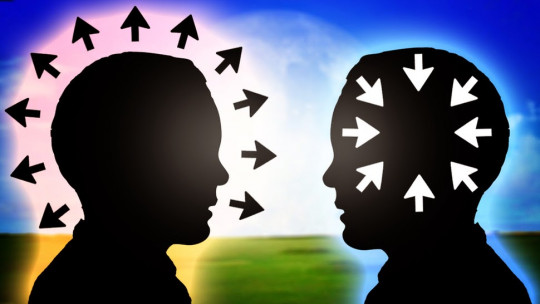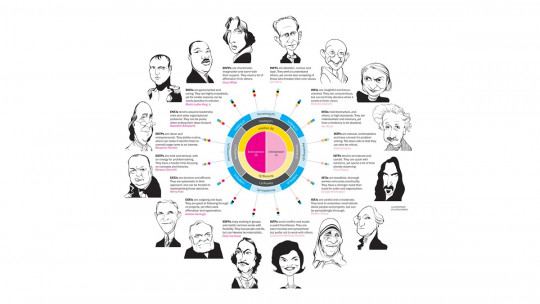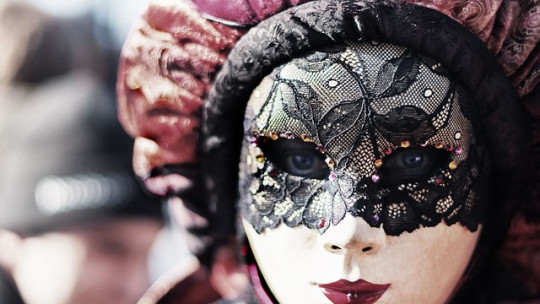Carl Gustav Jung is an essential figure in the history of psychology and founder of his own school of thought within the psychoanalytic field. His theories have been an inspiration for later authors and a source of great controversy. For a long time, Jung was a disciple of Freud, but he distanced himself from Freud mainly because he did not agree with his theory of sexuality.
Furthermore, Jung defended the existence of a “collective unconscious” that is prior to the “individual unconscious.” In this PsychologyFor article, we explain the 8 personality types according to Jung
Personality theory according to Carl Jung
For Carl Jung there is 4 basic psychological functions : think, feel, judge and perceive. Each person has more or less emphasis on some of these functions. For example, when someone is impulsive, according to Jungian psychology, this is due to the fact that the “judgment and perceiving” functions are more predominant in that person than the “feeling and thinking” functions. Based on these 4 basic functions, Jung postulated that there are two main character types: introverted and extroverted.
Extroverted character
The extroverted character is characterized by the following characteristics:
- His interests focus on “external” reality instead in the inner world
- They make decisions thinking about the effects on “external” reality instead of their own existence.
- Actions are carried out based on what others think of them
- Ethics and morality are built depending on what prevails in the world
- They are people who fit into almost any environment, but they go through a difficult adaptation time.
- They are suggestible, influential and tend to imitate others.
- They need to be seen and recognized for the others
Introverted character
The introverted character has the following characteristics:
- They are interested in themselves, their feelings and thoughts
- Their behavior is based on how they feel, think, even though their actions go against external reality.
- They do not worry much about the effects of their actions on their immediate environment. They care about everything that satisfies them internally.
- Have problems adapting To the environment. However, if they manage to adapt, they will do so in a creative and fulfilling way.

Types of personalities and their characteristics
Based on the 4 basic psychological functions and the two fundamental character types, Jung states that there are 8 personality types:
1. Reflective extrovert
The extroverted reflective personality corresponds to an objective person who bases his actions on reason They only accept as true those things that are confirmed with sufficient evidence. They are not very sensitive and can become tyrants and manipulators with other people.
2. Reflective introvert
This is a person with an important intellectual activity, but who nevertheless has difficulties relating or interacting with other people. They tend to be tenacious and stubborn when they focus on meeting their goals. They are sometimes seen as harmless, though interesting, social misfits.
3. Extroverted Sentimental
They are people with great ability to understand others and establish good social relationships. However, they struggle to separate themselves from the rest and suffer when they are ignored by the people around them. They have very good communication skills.
4. Introverted emotional
This personality type corresponds to Solidarity people who have great difficulty establishing social relationships. They can be asocial and melancholic. They do everything possible to go unnoticed and want to remain silent. However, they are very sensitive to the needs of others.
5. Extroverted Perceptive
This type of personality is related to a special weakness for objects , to which they attribute magical qualities, although they may do so unconsciously. They are not passionate about ideas but prefer the concrete things into which ideas are transformed. They seek pleasure above all things.
6. Introverted Perceiver
It is a type of personality that is seen in artists and musicians They place special emphasis on sensory experiences. They place great value on color, shape and texture. They are usually people with a tendency to synesthesia.
7. Extroverted intuitive
Its about typical adventurer Intuitive extroverts are very active and restless. They need to be stimulated all the time. They are tenacious when trying to achieve their goals and once they achieve it, they begin to focus on the next one. They do not care much about the well-being of the people around them.
8. Introverted intuitive
They are extremely sensitive to subtle stimuli It’s about these people trying to figure out how other people think, feel, or want. They are imaginative, dreamers and idealists. They have trouble “keeping their feet on the ground.”

Other facts about the psychology of Carl Jung
- Jung described his theory of personality this way:
“Even in medical circles the prevailing opinion is that my method of treatment consists of “fitting” patients into this system and giving them the corresponding solution… My theory is rather a critical system that serves to organize the existing confusion on this topic. , but It’s not about giving labels to people It is not a physiognomy or an anthropological system, but it does aim to be a critical psychology based on the organization and delimitation of psychic processes that can be understood as typical.”
- Jung’s personality theory has been criticized for the lack of empirical studies or scientific evidence to support it.
- Jung was an intellectual with great curiosity and gathered information from many different sources. In addition to neurology and psychoanalysis, Jung’s theories were influenced by mythology, religion, and even parapsychology. One of his great passions was archeology and it is likely that this gave rise to his archetype theory a theory of universal symbols that are present in the unconscious human mind.
This article is merely informative, at PsychologyFor we do not have the power to make a diagnosis or recommend a treatment. We invite you to go to a psychologist to treat your particular case.
If you want to read more articles similar to 8 personality types according to Jung we recommend that you enter our Personality category.








